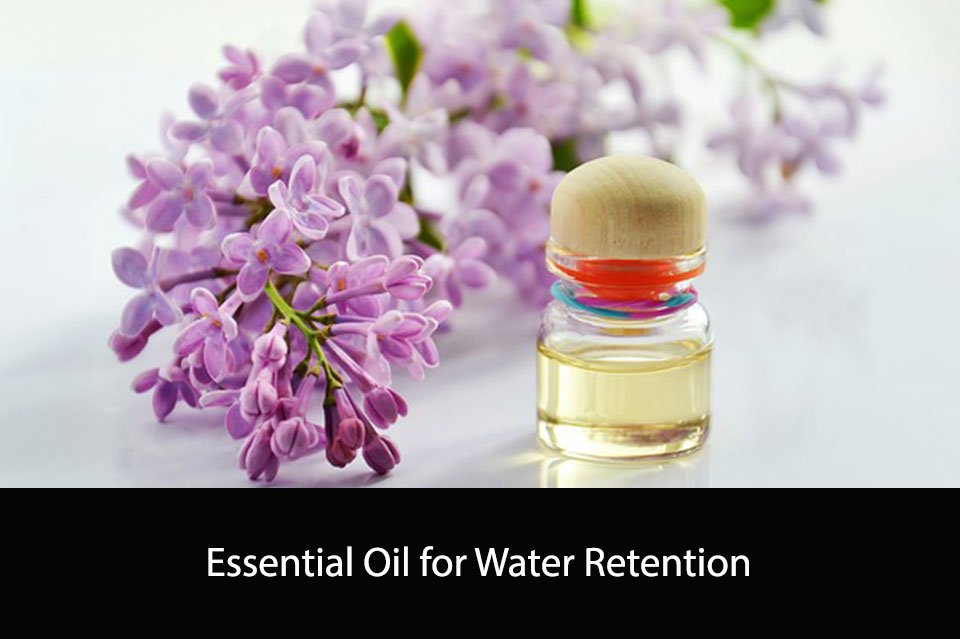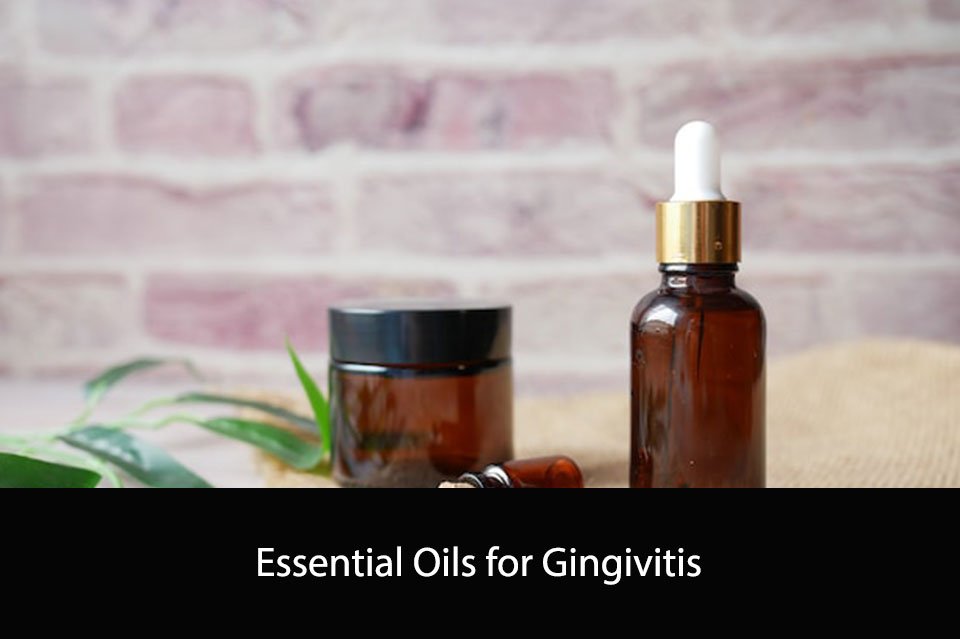Essential oils have been used for centuries to alleviate various health issues, including water retention. Water retention, also known as edema, is a common condition where excess fluid accumulates in the body’s tissues, leading to swelling and discomfort. While there are several conventional treatments available for this condition, many people are turning to essential oils for a natural and effective solution.
Essential oils are highly concentrated plant extracts that contain the natural aroma and flavor of the plant. These oils are rich in active compounds that have various therapeutic properties, making them an excellent choice for treating water retention. Some essential oils are diuretic, which means they help to increase urine production and reduce water retention. Other oils have anti-inflammatory properties that can help to reduce swelling and inflammation in the body. In this article, we will explore the best essential oils for water retention and how to use them effectively.
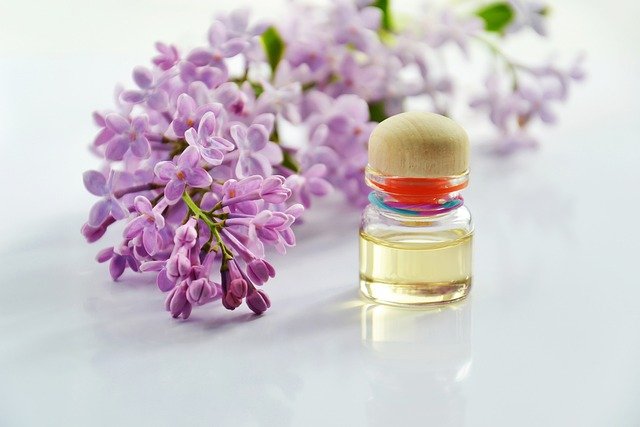
Understanding Water Retention
Water retention, also known as edema, is a condition that occurs when excess fluid builds up in the body’s tissues. This can cause swelling, bloating, and discomfort. While water retention can affect anyone, it is more common in women and older adults.
There are several potential causes of water retention, including:
- Hormonal changes, such as those that occur during menstruation or pregnancy
- Certain medications, such as blood pressure medications or NSAIDs
- Medical conditions, such as heart failure or kidney disease
- Inactivity or prolonged sitting or standing
- Consuming a diet high in sodium
Water retention can be uncomfortable and even painful, but it is typically not a serious condition. However, if you experience severe or sudden swelling, you should seek medical attention.
There are several natural remedies that may help alleviate water retention, including drinking plenty of water, reducing salt intake, and increasing physical activity. Additionally, certain essential oils may help reduce swelling and improve circulation. We will explore these options further in the following sections.
Essential Oils: An Overview
Essential oils are highly concentrated plant extracts that are used in aromatherapy and other alternative therapies. They are derived from various parts of plants, including leaves, flowers, bark, and roots. Essential oils are known for their therapeutic properties and can be used to treat a wide range of health conditions, including water retention.
When it comes to water retention, essential oils can be used to help reduce swelling and inflammation in the body. Some of the most effective essential oils for water retention include:
- Juniper Berry Oil: Known for its diuretic properties, juniper berry oil can help to reduce water retention by increasing urine output.
- Cypress Oil: This oil is known for its ability to improve circulation and reduce swelling, making it a great choice for those suffering from water retention.
- Grapefruit Oil: Grapefruit oil is a natural diuretic and can help to reduce water retention by increasing urine output.
- Lemon Oil: Lemon oil is another natural diuretic that can help to reduce water retention by increasing urine output.
- Fennel Oil: Fennel oil is known for its ability to improve digestion and reduce inflammation, making it a great choice for those suffering from water retention.
When using essential oils for water retention, it’s important to dilute them with a carrier oil before applying them to the skin. Some of the most popular carrier oils include coconut oil, almond oil, and jojoba oil.
Overall, essential oils can be a safe and effective way to reduce water retention. However, it’s important to speak with a healthcare professional before using essential oils, especially if you have any underlying health conditions or are taking medication.
The Science Behind Essential Oils and Water Retention
Biological Impact
Essential oils are highly concentrated plant extracts that contain a variety of chemical compounds. These compounds have been shown to have a range of biological effects, including anti-inflammatory, diuretic, and antioxidant properties. When it comes to water retention, essential oils may help to reduce swelling and improve circulation, which can help to reduce the buildup of excess fluids in the body.
One of the key ways that essential oils can impact water retention is through their diuretic properties. Diuretics are substances that help to increase urine output, which can help to reduce fluid buildup in the body. Some essential oils, such as juniper berry and parsley seed, have been shown to have diuretic effects in animal studies.
Scientific Research
While there is limited scientific research on the use of essential oils for water retention specifically, there is some evidence to suggest that certain oils may be beneficial. For example, a 2015 study published in the Journal of Alternative and Complementary Medicine found that a blend of essential oils, including grapefruit, cypress, and juniper, was effective at reducing ankle swelling in women with a history of ankle edema.
Another study, published in the Journal of Medicinal Food in 2013, found that a combination of essential oils, including fennel, grapefruit, and rosemary, helped to improve lymphatic drainage and reduce fluid buildup in the legs of women with mild to moderate lymphedema.
While more research is needed to fully understand the potential benefits of essential oils for water retention, these studies suggest that they may be a promising natural remedy for reducing swelling and improving circulation. As with any natural remedy, it is important to speak with your healthcare provider before using essential oils, especially if you are pregnant, nursing, or taking medication.
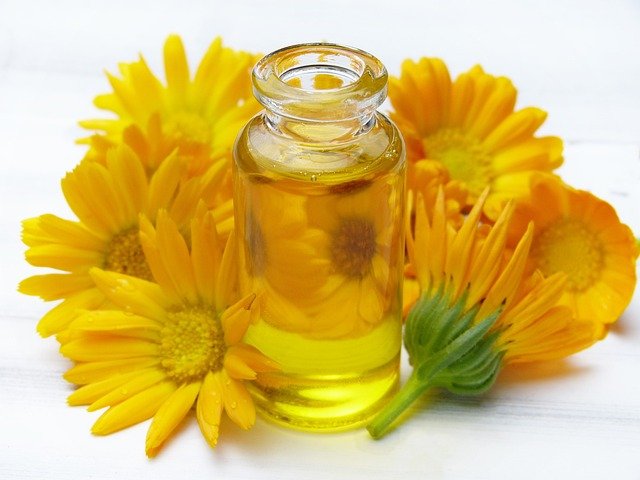
Top Essential Oils for Water Retention
Lavender
Lavender essential oil is one of the most versatile and widely used essential oils. It is known for its calming and relaxing properties, making it a popular choice for aromatherapy. In addition to its calming effects, lavender oil is also a natural diuretic, which makes it a great choice for reducing water retention. It helps to flush out excess fluids from the body and reduce swelling.
To use lavender oil for water retention, add a few drops to a warm bath or mix it with a carrier oil, such as coconut oil, and massage it into the affected area.
Juniper Berry
Juniper berry essential oil is another natural diuretic that can help to reduce water retention. It is also known for its detoxifying properties and can help to eliminate toxins from the body. Juniper berry oil is often used in massage oils and bath salts to help reduce swelling and bloating.
To use juniper berry oil for water retention, mix a few drops with a carrier oil and massage it into the affected area. You can also add a few drops to a warm bath or use it in a diffuser to enjoy its detoxifying benefits.
Grapefruit
Grapefruit essential oil is a refreshing and invigorating oil that is known for its ability to stimulate the lymphatic system. This makes it a great choice for reducing water retention and swelling. Grapefruit oil is also a natural diuretic and can help to flush out excess fluids from the body.
To use grapefruit oil for water retention, add a few drops to a warm bath or mix it with a carrier oil and massage it into the affected area.
Lemon
Lemon essential oil is another natural diuretic that can help to reduce water retention. It is also known for its cleansing and detoxifying properties. Lemon oil is often used in aromatherapy to help reduce stress and anxiety.
To use lemon oil for water retention, add a few drops to a warm bath or mix it with a carrier oil and massage it into the affected area. You can also use it in a diffuser to enjoy its cleansing and uplifting benefits.
Rosemary
Rosemary essential oil is a natural diuretic that can help to reduce water retention and swelling. It is also known for its anti-inflammatory properties, making it a great choice for reducing pain and inflammation in the body.
To use rosemary oil for water retention, mix a few drops with a carrier oil and massage it into the affected area. You can also add a few drops to a warm bath or use it in a diffuser to enjoy its anti-inflammatory benefits.
How to Use Essential Oils for Water Retention
When it comes to using essential oils for water retention, there are a few different methods you can try. In this section, we’ll explore the three most common ways to use essential oils: topical application, aromatherapy, and internal use.
Topical Application
One of the most popular ways to use essential oils for water retention is through topical application. This involves diluting the essential oil with a carrier oil and applying it to the affected area. Some of the best essential oils for topical application include:
- Juniper Berry
- Grapefruit
- Cypress
- Lemon
- Geranium
To use essential oils topically, simply mix a few drops of the essential oil with a carrier oil like coconut or jojoba oil. Then, massage the mixture into the affected area in a circular motion. Be sure to dilute the essential oil properly to avoid skin irritation.
Aromatherapy
Aromatherapy is another popular way to use essential oils for water retention. This involves inhaling the scent of the essential oil, either through a diffuser or by adding a few drops to a bowl of hot water. Some of the best essential oils for aromatherapy include:
- Rosemary
- Lavender
- Lemon
- Peppermint
- Tea Tree
To use essential oils for aromatherapy, simply add a few drops to a diffuser or a bowl of hot water. Then, inhale the scent deeply for a few minutes. You can also add a few drops to a warm bath for a relaxing soak.
Internal Use
While not as common as topical application or aromatherapy, some people choose to use essential oils for water retention internally. This involves adding a few drops of the essential oil to a glass of water or a capsule. Some of the best essential oils for internal use include:
- Lemon
- Grapefruit
- Juniper Berry
- Fennel
- Ginger
To use essential oils internally, simply add a few drops to a glass of water or a capsule. Be sure to follow proper dilution guidelines and consult with a healthcare professional before using essential oils internally.
Safety Precautions and Side Effects
When using essential oils for water retention, it is important to take certain safety precautions to avoid any potential side effects. Here are some important things to keep in mind:
- Always dilute essential oils before use. Undiluted oils can cause skin irritation, allergic reactions, and other adverse effects. We recommend using a carrier oil such as coconut oil, jojoba oil, or almond oil to dilute the essential oil.
- Do not ingest essential oils. They are highly concentrated and can be toxic if ingested. We recommend using essential oils topically or aromatically only.
- Avoid using essential oils if you are pregnant or nursing. Some essential oils can have harmful effects on the developing fetus or infant.
- If you have sensitive skin or a history of allergies, do a patch test before using any new essential oil. Apply a small amount of diluted oil to your skin and wait 24 hours to see if any adverse reactions occur.
- Always store essential oils out of reach of children and pets. Essential oils can be harmful if ingested or applied improperly.
In addition to these safety precautions, there are also some potential side effects to be aware of when using essential oils for water retention. While these side effects are generally mild and rare, it is important to be aware of them:
- Skin irritation: Some essential oils can cause skin irritation, especially if they are not diluted properly or if you have sensitive skin. If you experience any redness, itching, or swelling, discontinue use of the oil immediately.
- Photosensitivity: Certain essential oils, such as citrus oils, can increase your skin’s sensitivity to sunlight. If you use these oils topically, avoid direct sunlight and tanning beds for at least 12 hours after use.
- Allergic reactions: Some people may have allergic reactions to certain essential oils, especially if they have a history of allergies. If you experience any symptoms such as hives, difficulty breathing, or swelling of the face or throat, seek medical attention immediately.
Overall, essential oils can be a safe and effective way to manage water retention when used properly. By following these safety precautions and being aware of the potential side effects, you can use essential oils with confidence and achieve the desired results.
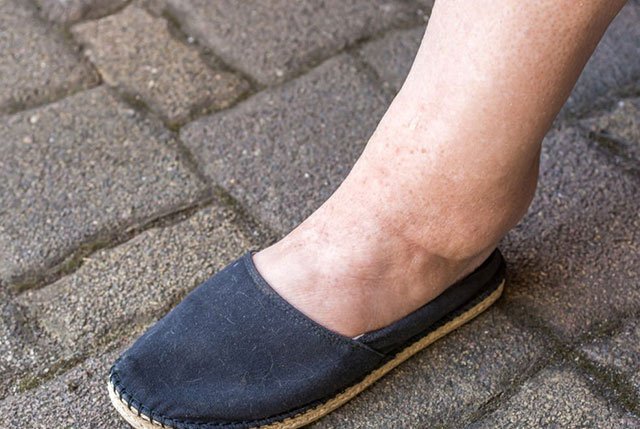
Conclusion
In conclusion, water retention can be a frustrating condition to deal with, but essential oils may offer some relief. While there is limited scientific evidence to support their effectiveness, many people have reported positive results from using essential oils to reduce swelling and improve circulation.
It’s important to note that essential oils should never be used as a substitute for medical treatment or advice from a healthcare professional. If you’re experiencing severe or persistent water retention, it’s important to seek medical attention to rule out any underlying health conditions.
When using essential oils, it’s important to follow proper dilution guidelines and to avoid applying them directly to the skin without dilution. Some essential oils may also interact with certain medications, so it’s important to check with your healthcare provider before using them.
Overall, essential oils may be a helpful addition to a comprehensive treatment plan for water retention. However, it’s important to approach their use with caution and to prioritize your overall health and well-being.
Frequently Asked Questions
What are some essential oils that can help with edema in legs and feet?
Some essential oils that may help with edema in legs and feet include Cypress, Juniper Berry, and Lemon. These oils are known for their ability to promote circulation and reduce swelling.
What are some Young Living essential oil blends for swollen feet?
Young Living offers several essential oil blends that may help with swollen feet, including Deep Relief Roll-On, PanAway, and Ortho Sport Massage Oil. These blends contain a variety of oils that are known for their ability to reduce inflammation and promote circulation.
What are some essential oils that can help with swelling ankles?
Some essential oils that may help with swelling ankles include Lavender, Peppermint, and Frankincense. These oils are known for their ability to reduce inflammation and promote circulation.
What are some essential oil blends that can help with swelling in legs, ankles, and feet?
Some essential oil blends that may help with swelling in legs, ankles, and feet include DiGize, Purification, and Stress Away. These blends contain a variety of oils that are known for their ability to reduce inflammation and promote circulation.
Can frankincense be used to help with water retention?
Frankincense is known for its ability to reduce inflammation and promote circulation, which may help with water retention. However, it is important to note that more research is needed to fully understand the effects of frankincense on water retention.
How can essential oils be used to make a treatment for edema?
Essential oils can be used to make a treatment for edema by adding a few drops to a carrier oil, such as coconut or jojoba oil, and massaging the affected area. Alternatively, essential oils can be added to a warm bath or used in a compress. It is important to dilute essential oils properly and to consult with a healthcare professional before using essential oils for any health condition.

